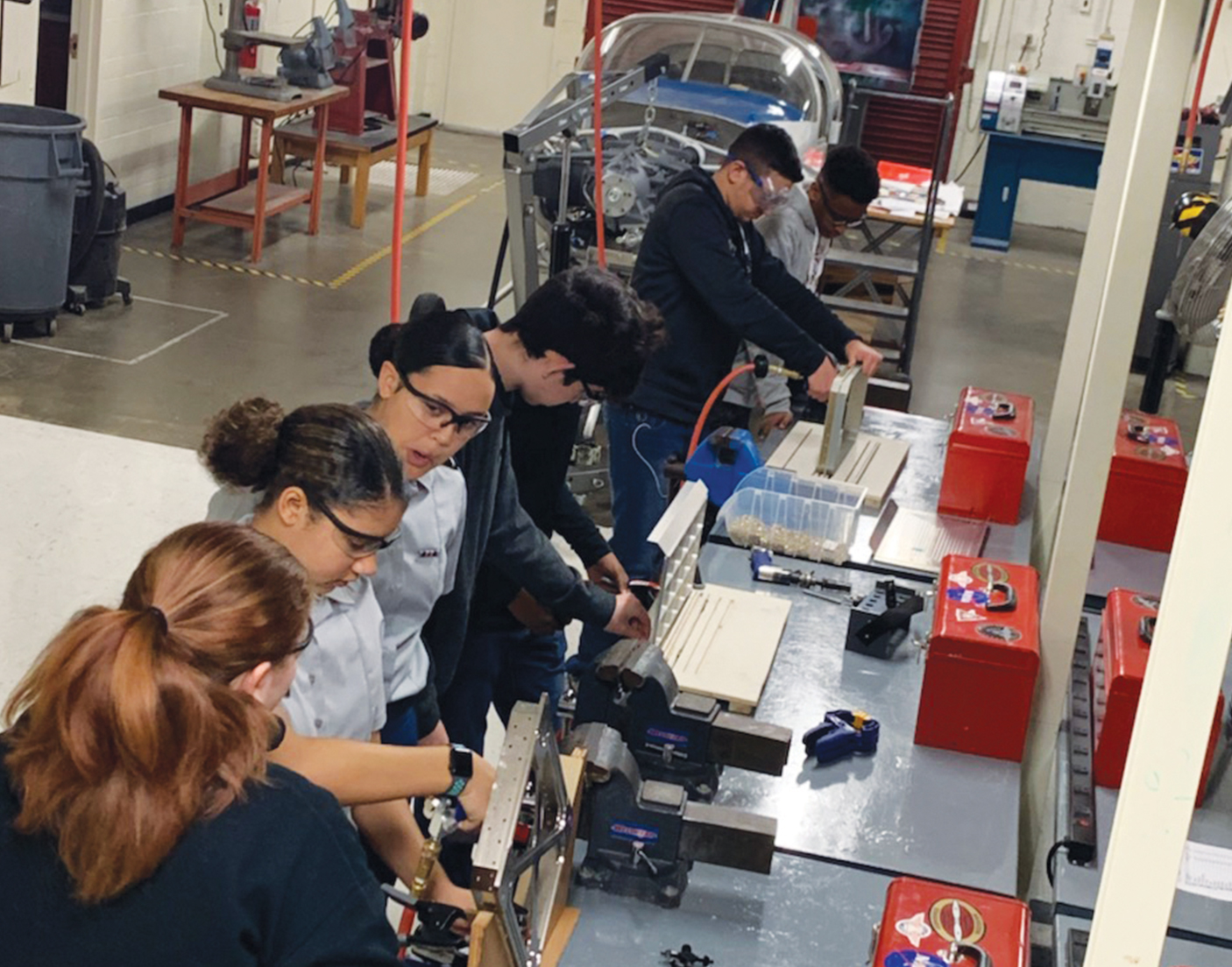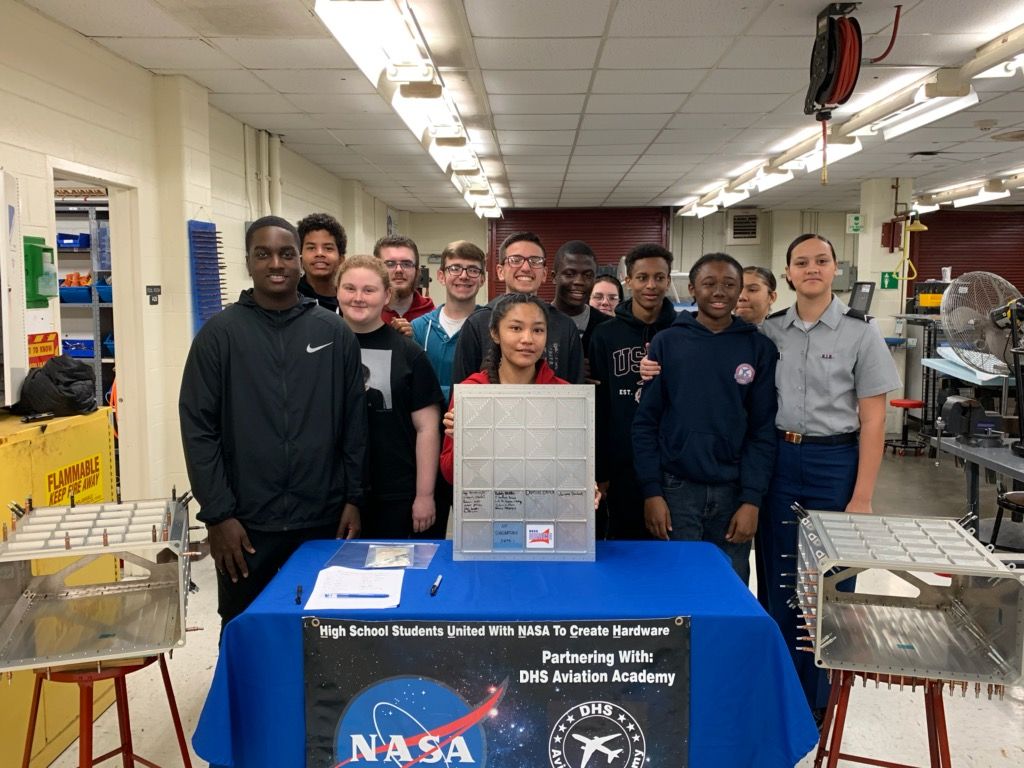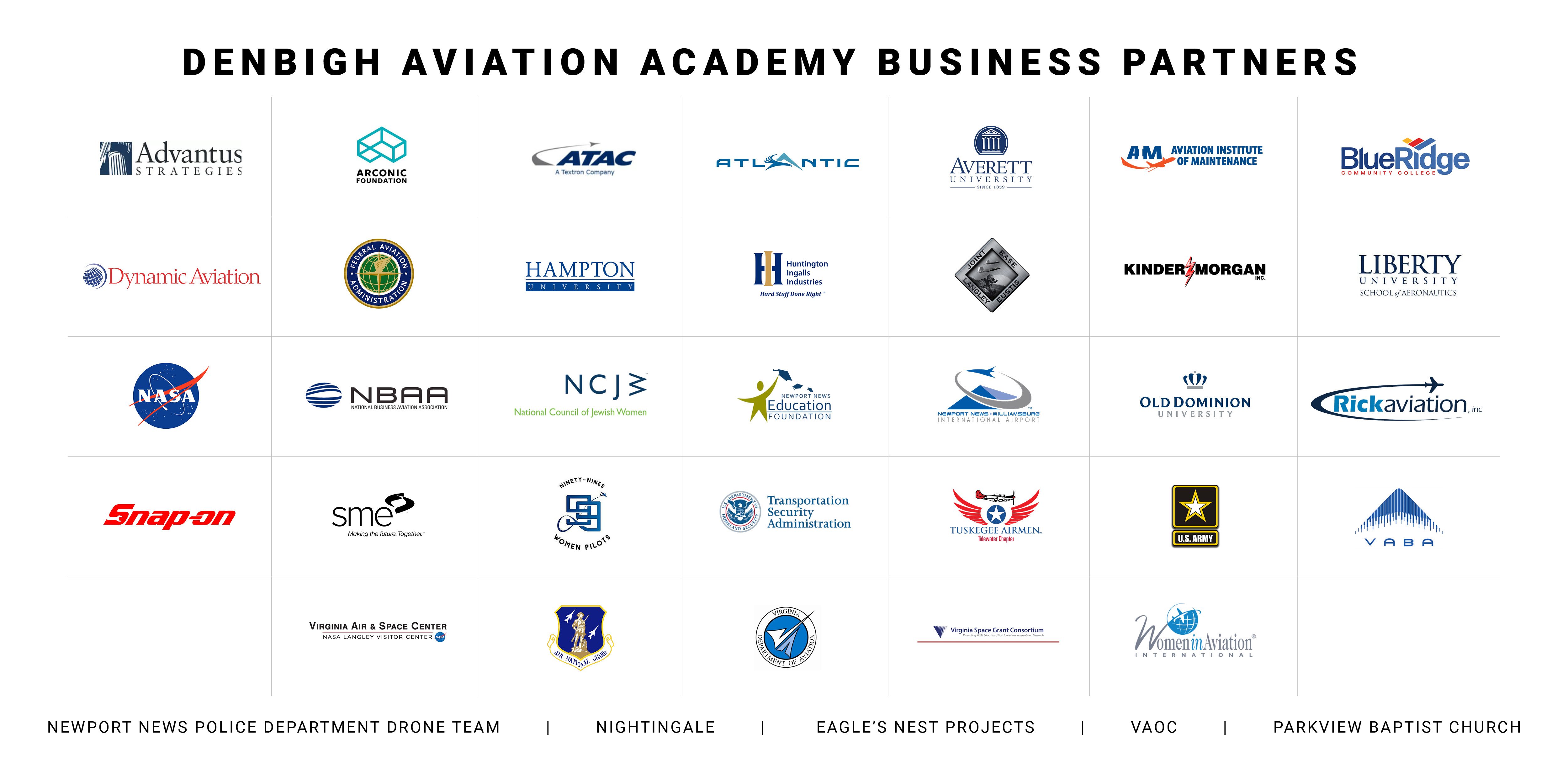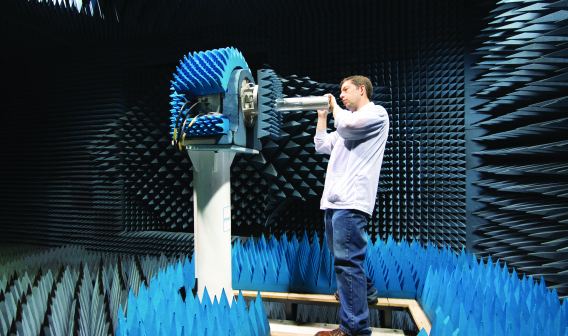Training Mission: Denbigh High School Aviation Academy
Denbigh High School's Aviation Academy is a Top-Flight Launch Pad for Rising Talent
Attitude Equals Altitude
That’s the philosophy at Denbigh High School’s Aviation Academy in Newport News in Hampton Roads, a nationally recognized STEM site designed to put no limits on how high students can soar.
The only aviation magnet school in the Commonwealth, the school-within-a-school exists in rarified air, joining a handful of similar programs in states including Florida, Arizona, and Texas.
Denbigh High School’s Aviation Academy launched in 1995, fueled by a U.S. Department of Defense grant funded through Communities In Schools. Starting out with just 36 students, the flight plan was clear: build a talent pipeline for Hampton Roads’ public and private aviation industry employers, as well as those throughout Virginia, while providing students clear pathways to land these opportunities.
“Newport News Public Schools selected aviation maintenance technology as its focus because of the anticipated demand for employees in this high technology career field and the aviation influence of the military facilities,” said Dr. Aaron Smith, Aviation Academy program administrator. “With Newport News Williamsburg International Airport within three miles of Denbigh High School, this was an excellent match.”
That last piece is critical, as Aviation Academy students split time between two sites: Denbigh High School for classroom instruction and the airport’s campus for critical, real-world skills training.
The Aviation Academy has since expanded to accommodate about 275 students in grades 9–12. Meanwhile, administrators, faculty, and strategic partners continue to elevate the student experience in novel ways. Today, pupils can study industry trends in the Drone and Virtual Reality Rooms. They can get hands-on training with aircraft including a Sonnex, RV-6, RV-12, Avid, and Cessna — conducting pre-flight op checks, among other things. And students can put their models to the test — seeing how their handiwork fares against 60 knots in the 50-foot wind tunnel.
Earning Their Wings
The initial checkpoint for aspiring Denbigh Aviation Academy students is gaining entry to the program through a lottery alongside all applicants vying for spots in the district’s magnet schools.
After acceptance into the program, students have four academic pathways to choose from, each selected based on its alignment with aviation talent needs and designed to provide plenty of hands-on assignments:
- Flight Operations: Students can take the controls in the flight simulator lab. Through the Virginia Pathway Program, they can earn 10 hours toward receiving their private pilot’s license.
- Aerospace Engineering: Here, classwork can include building a hovercraft and working on CAD programs.
- Aviation Safety & Security: A growing need within the industry, this training helps the next wave of aviation professionals ensure that the pace of safety and security keeps pace with innovation.
- Aviation Technology: Students in this pathway get to know aircraft from the inside out as they help build an RV-12 plane.
These pathways represent just the first leg of students’ journeys. From there, they can choose to pursue the next level of aviation training at college. Smith noted that with companies looking to create more diverse workforces, ample scholarships are available, especially for female and minority students.
“We also want our students to know that college is not the only option,” he said. For example, a student may wish to fly in the military, so we gladly point them toward a recruiter while providing insight on former alumni who have gone that route as to what was difficult for them and what was comfortable.”
Popular jobs Aviation Academy graduates take on include aerospace engineer, aircraft mechanic, airtraffic controller, electrician, and drone operator.
In addition to the Virginia Department of Education’s curriculum reviews for every career and technical education course at the Aviation Academy, the school’s business partners also share insights on current initiatives and skills they want in their current or future employees. Also, professional organizations such as the Aviation Technician Education Council provide guidance on FAA mandates.
From Real-World to Out-of-this-World Experience
In some ways, Denbigh High School’s Aviation Academy students are no different than those attending any other school. For example, they spend time hanging out at their lockers
But the lockers Aviation Academy students are spending time beside aren’t there to stow their own books, coats, and brown-bagged lunches.
Rather, these lockers are mission-essential Space Flight Hardware that will contain critical payloads, instrumentation, and supplies for transport and installation aboard the International Space Station (ISS).
Through NASA’s High School Students United With NASA to Create Hardware (HUNCH) program, the Aviation Academy has partnered with NASA since 2012 to work on prototypes and special projects for astronauts working on the ISS, including these Single Stowage Lockers.
As you might imagine, the process for constructing the lockers is a step up from your typical science fair project. It involves using 40-plus individually machined and extremely tight tolerance components — hardware that must comply with NASA’s stringent engineering, structural, and quality control requirements.
“This project blends in perfectly [with the curriculum] as it reinforces skills such as riveting and reading blueprints, which is covered in the Maintenance classes,” Smith said.
There’s also a focus on soft skills that uniquely equips Aviation Academy students for their next mission.
“The program teaches students how to work in team settings, think independently, and allows students to communicate and interact with professionals outside of the classroom,” said Yolanda Watford Simmons, NASA Langley Research Center’s HUNCH Program Manager. “Employers, college professors, admissions, military leadership, and recruiters greatly benefit by gaining career-ready employees who are more likely to be engaged in their work, bringing innovative ideas and fresh perspectives,” she said. “This is an excellent opportunity for employers to expose new hires to their brands.”
Denbigh Aviation Academy takes on some more down-to-earth collaborations as well. For example, students have taken field trips to Joint Base Langley-Eustis to watch maintenance crews carry out jet refueling.
Exploring New Heights
The Denbigh Aviation Academy continues to evolve to meet the need of the area’s students and the Commonwealth’s public and private sectors.
Just two years ago, Denbigh Aviation Academy invited Poquoson City Schools to participate.
“Students come and take our aviation courses, which has benefitted the students and future employers,” Smith said.
Meanwhile, the Academy continues to build on its coursework. In the fall, material focusing on ground and aviation maintenance, as well as drones, will be implemented.
For its efforts, Denbigh Aviation Academy has been recognized by the Society of Manufactured Engineers Education Foundation as part of the SME PRIME® (Partnership Response In Manufacturing Education) Network. It is the only school in Virginia to receive such recognition, a distinction earned by about 60 schools across the United States.
According to the SME Education Foundation, “Students in the SME PRIME Network receive hands-on training on modern equipment and learn about technology and processes through tailored curriculum that is informed by local manufacturing companies in their communities.”
Added Smith, “We are part of a proud cohort dedicated to helping to improve the manufacturing industry."







